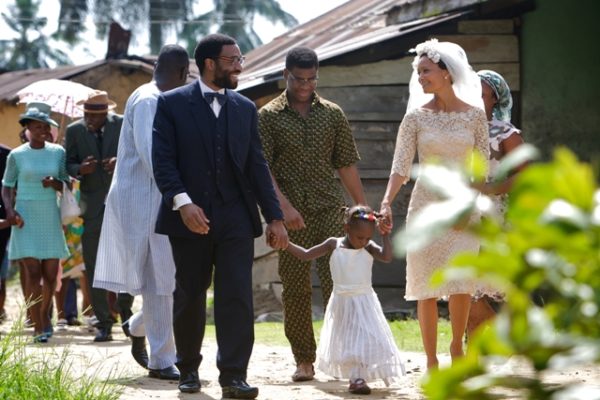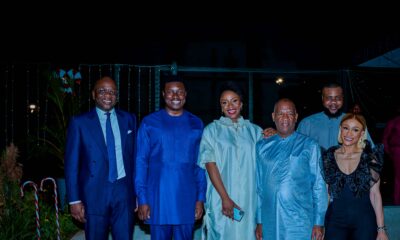News
Chimamanda Ngozi Adichie Slams Delay of HOAYS: “Hiding from Our History”
I don’t know about you, but I have secretly been waiting for a response from Chimamanda Ngozi Adichie on the delay of Half of a Yellow Sun in Nigerian cinemas.
The movie which is an adaptation of the Nigerian author’s second novel, has become a worldwide phenomenon.
As you all know, BN Movies & TV has constantly been keeping you updated on the movie which has been dubbed the “biggest Nollywood movie in recent times”. Read the last update.
In an article for The New Yorker, Chimamanda shares her disappointment.
Chimamanda who was born 7 years after the war ended, begins the article with her fond childhood memories. ” I had a bicycle, dolls, books—but my family was scarred by it.” she shared.
To read the full write up, check it out here on The New Yorker;
But the Biafran war is still wrapped in a formal silence. There are no major memorials, and it is hardly taught in schools. This week, Nigerian government censors delayed the release of the film adaptation of “Half of a Yellow Sun” because, according to them, it might incite violence in the country; at issue in particular is a scene based on a historically documented massacre at a northern Nigerian airport. It is now up to the State Security Service to make a decision. The distributors, keen to release the film before it is engulfed in piracy, are hoping that the final arbiters of Nigerian security will approve its release. I find this absurd—security operatives, uniformed and alert, gathered in a room watching a romantic film—but the censors’ action is more disappointing than surprising, because it is part of a larger Nigerian political culture that is steeped in denial, in looking away.
Partly the result of an unexamined past and partly of the trauma of years of military dictatorship, a sustained and often unnecessary sense of secrecy is the norm in Nigerian public life. We talk often of the “sensitivity” of issues as a justification for a lack of transparency. Conspiracy theories thrive. Soldiers are hostile to video cameras in public. Officials who were yesterday known as thieves are widely celebrated today. It is not unusual to hear Nigerians speak of “moving forward,” as though it might be possible merely to wish away the unpleasant past.
The censors’ action is a knee-jerk political response, yet there is a sense in which it is not entirely unreasonable. Nigeria is on edge, with upcoming elections that will be fiercely contested, religion and ethnicity increasingly politicized, and Boko Haram committing mass murders and abductions. In a political culture already averse to openness, this might seem a particularly appropriate time for censorship.
But we cannot hide from our history. Many of Nigeria’s present problems are, arguably, consequences of an a historical culture. As a child, I sometimes found rusted bullets in our garden, reminders of how recent the war had been. My parents are still unable to talk in detail about certain war experiences. The past is present, and we are better off acknowledging it and, hopefully, learning from it.
It is sadly easy, in light of the censors’ action, to overlook the aesthetic success of the film. Its real triumph is not in its politics but in its art. The war is the background to the complicated romance of characters played by Chiwetel Ejiofor and Thandie Newton, both of whom give the most complex performances of their careers. As a flawed professor, Ejiofor is finally freed from the nobility that was central, and limiting, to his past major roles. Here, his range is breathtaking. Newton brings a nuanced blend of strength and vulnerability to a character for whom she eschews the vanity of a beautiful movie star. On the screen, their chemistry breathes. Cinema, Susan Sontag once wrote, began in wonder, the wonder that reality can be transcribed with such immediacy. Director Biyi Bandele’s eye is awash with magic, but also with a kind of nostalgia, a muted love, a looking back at a country to which this film is both a love letter and a rebuke.
Nigerians are sophisticated consumers of culture and, had the censorship board not politicized the film by delaying its release, I suspect that few people would have objected to it at all.



























